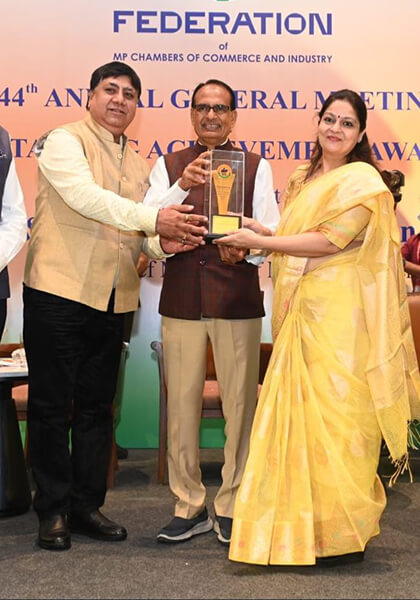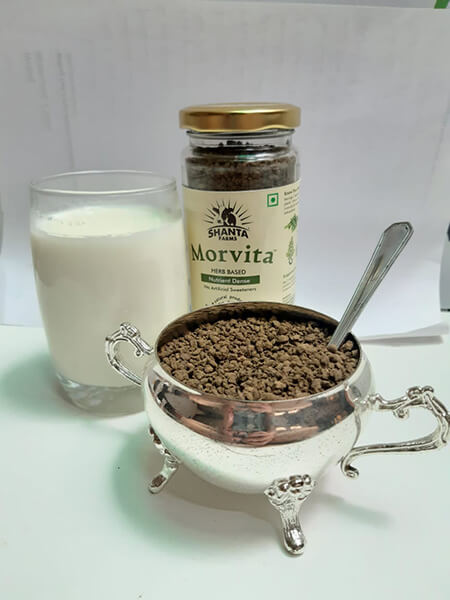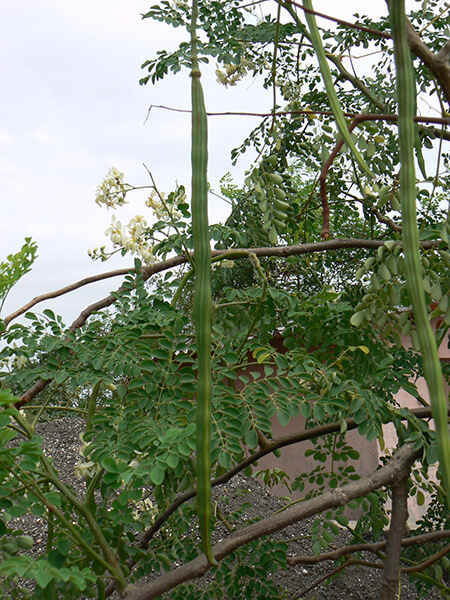Agripreneurs Pallavi and Sanjay Vyas are betting big on moringa or drumstick as a health and nutrition supplement.
 Anisha Jain
Anisha Jain  TR Vivek
TR Vivek 
Agripreneurs Pallavi and Sanjay Vyas are betting big on moringa or drumstick as a health and nutrition supplement.
 Anisha Jain
Anisha Jain  TR Vivek
TR Vivek
Moringa or drumstick and sambar is a match made in food heaven. Yet, it struggles to cross the Vindhyas into India’s north. The green, ribbed sticks floating in a bowl of sambar offer a puzzle. The perfect way to deal with drumstick is to first suck up its juices like marrow from the bone, then poke an end with the index finger to split it open, scoop out the jelly like flesh with three fingers, scrape it clean with lower incisors, and finally chew it up until the piece of drumstick resembles a spent sugar cane at a juice shop. Of course, all of it can seem savage for those uninitiated in southern culinary culture!
In the ancient Tamil tradition of Siddha medicine, the moringa tree is has the status of a superstar. Its leaves, flowers, bark and the drumstick itself are believed to be a cure for impotency to anemia and several other ailments in between. A moringa tree in the backyard was thought to be guarantor of good health. While drumstick as a vegetable remains under appreciated, there is now huge interest globally in harnessing the tree’s benefits in fighting malnutrition and lifestyle diseases, especially post-Covid 19.

The ‘miracle tree’
Pallavi and Sanjay Vyas, an Indore based agri-entrepreneur couple, too, is betting big on the ‘miracle tree’ called moringa. Their firm Shanta Farms sells moringa based cattle feed, human nutrition supplements and even a patented, chocolate-flavoured based moringa milk additive beverage called Morvita positioned as a healthy substitute for popular malted wheat brands such as Boost and Bournvita.
It’s a business opportunity they discovered almost by accident.

The Vyases ran a thriving organic dairy business focusing on indigenous cow breeds. The farm at its peak spread over nearly 40 acres with more than 200 cows. A chance meeting in 2015 with Giriraj Singh, a BJP MP from Bihar’s Begusarai and currently the Union Minister for animal husbandry and fisheries introduced them to moringa. “Nobody knew anything about moringa here till a few years ago. Even now it is hard to convince people to grow or eat it. When Giriraj Singh visited our dairy, he asked us to try out moringa as cow fodder,” says Pallavi Vyas, the a 45-year-old cofounder of Shanta Farms.
The advice seemed to work. Using moringa leaves as fresh fodder, silage and dried showed a 30% increase in productivity in six months. “Moringa was a nutrition dynamite. It helped prevent diseases like mastitis, fertility of cows went up, our veterinary bills fell sharply and we could completely stop spending on multivitamins and supplements for cows,” says Pallavi.
Being native to India, moringa can be grown pretty much in every part of India. It is especially adaptable to arid regions with poor rainfall and soil.
Over the next few years, the Vyases worked on dehydrating and processing the moringa leaves as a human health and immunity booster.
“In granulated form, moringa has ten times more vitamin A than carrots, 25 times more iron than spinach and nine times the protein in yoghurt. Following ayurvedic principles we developed a process for granulating moringa to fight anemia and malnutrition for which we have received a patent,” says Pallavi Vyas. During Covid-19, the couple worked with anganwadis and local government schools in Madhya Pradesh on pilot basis where children were given moringa supplements. “It was highly effective in tackling malnutrition with even the most stunted children gaining 200-300 grams in a month,” says Vyas.

A big business opportunity
According to Pallavi the company has pretty much shut down it’s dairy operations and is now focused on taking moringa products national. “With organic dairy, we found it hard to create a pan-India business. But with moringa, we see an opportunity to create a Rs 500 crore brand. Currently we make animal fodder, supplements for even carnivorous zoo animals and human nutrition products. We’ve barely begun work of moringa-based beauty and cosmetics products which is a massive opportunity,” she adds.